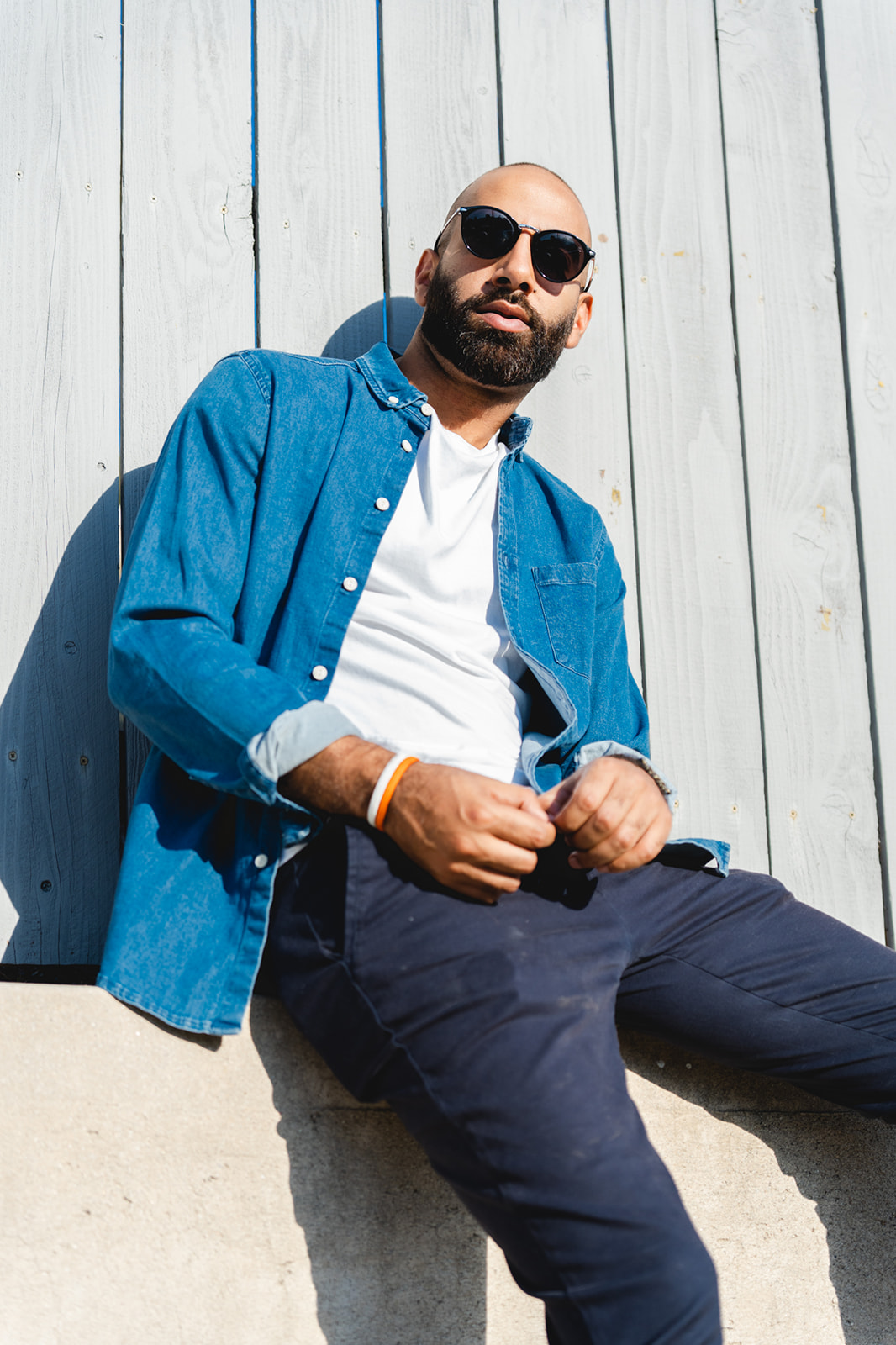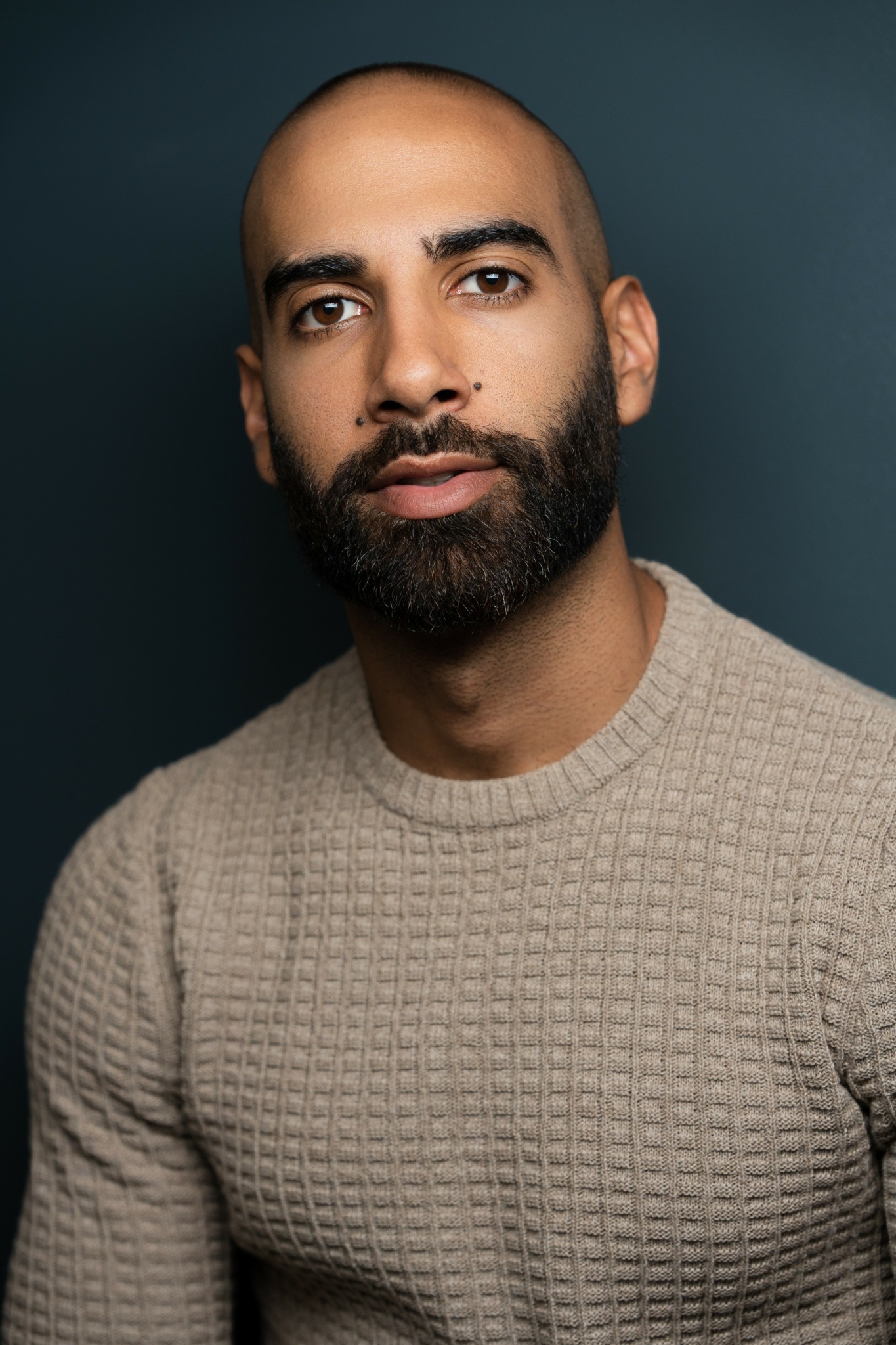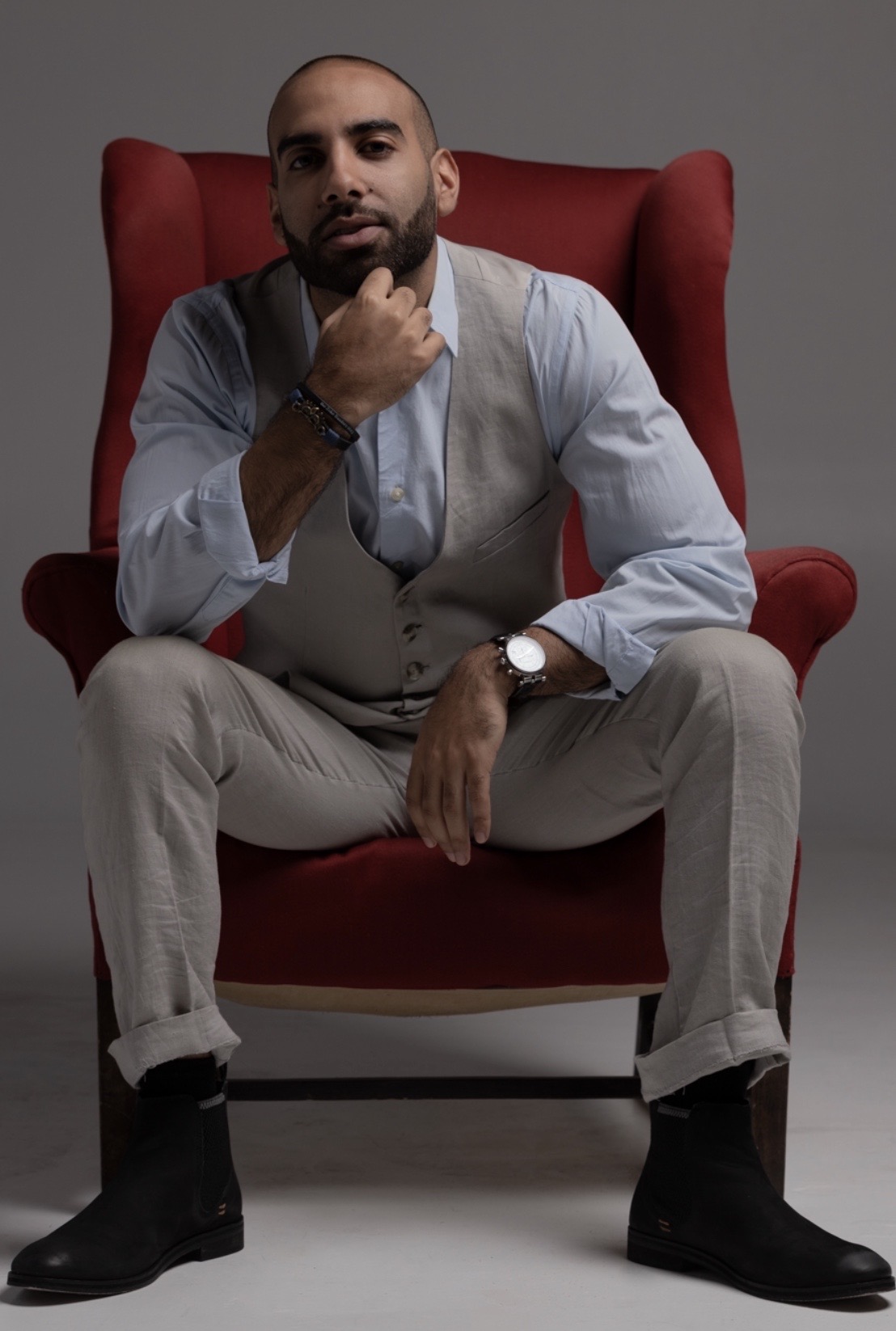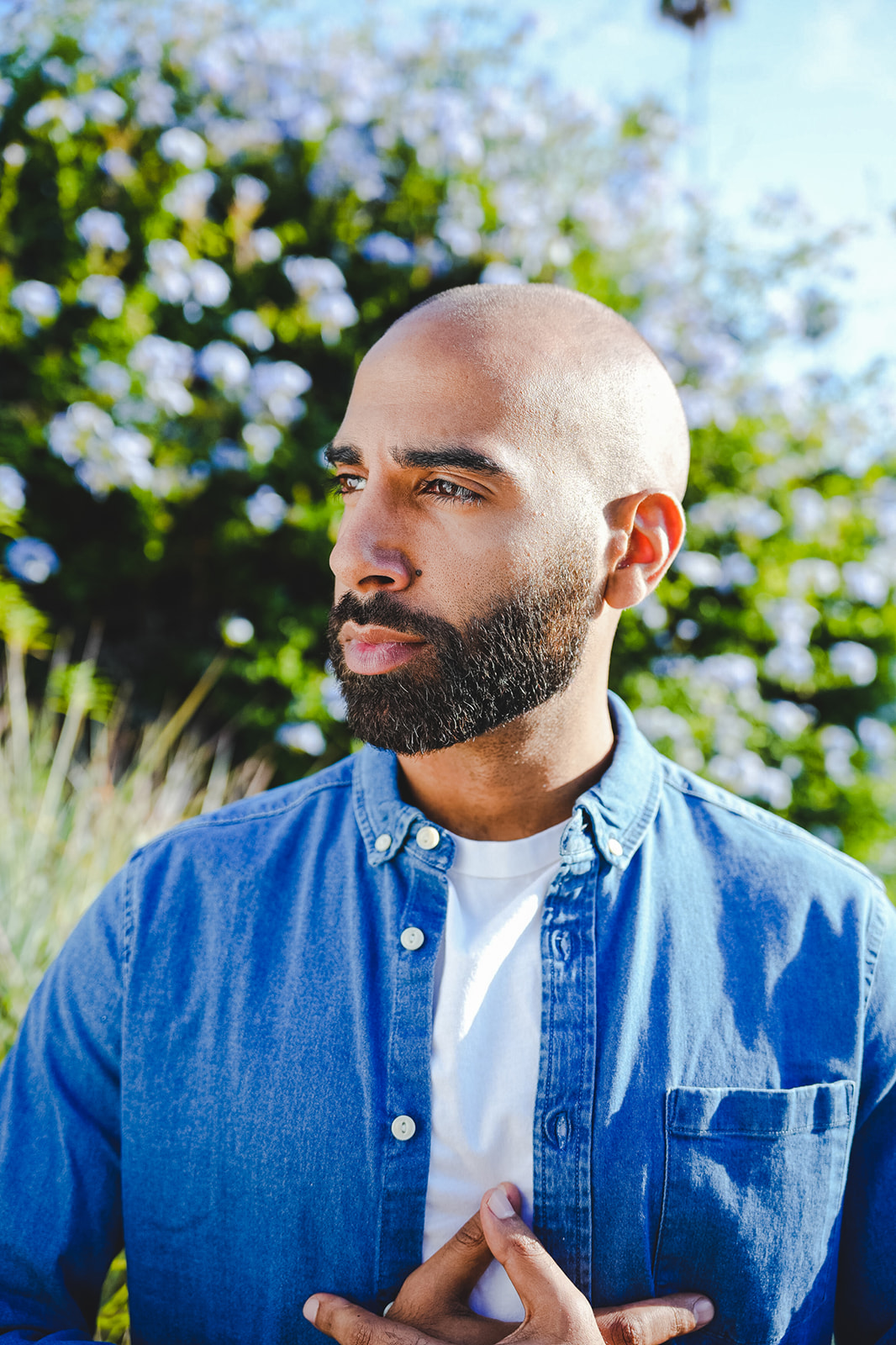We caught up with the brilliant and insightful Ezra Bynum a few weeks ago and have shared our conversation below.
Hi Ezra, thanks for joining us today. Learning the craft is often a unique journey from every creative – we’d love to hear about your journey and if knowing what you know now, you would have done anything differently to speed up the learning process.
I’m deliberately taking the long road. Finding writing came later in life. I spent my childhood and several years of college playing sports. It wasn’t until I was living in New York City when I stumbled into my first acting class, and where I found my voice. Looking back I wasn’t learning to act, but instead, to be an artist. It was in that class, twice a week for two years, that I learned to be vulnerable, present, opinionated, unfiltered, operate from instincts, and the many other qualities that allow someone to act or write or paint or dance.
But I couldn’t help notice the scenes each student worked on. How we were coached and guided to interpret them “correctly”. I thought of all the students who came before me, and all who will come after me, interpreting material the same way, year after year. When I eventually found the urge to write, and pursue it as a career, I knew I wanted to approach it from a different angle. An angle that relied on my experiences, my opinions and my instincts. I’ve never taken a writing class, seminar, tutor, or anything that involved someone teaching me the craft. I wanted to write, and I wanted to fail. I wanted to spill my heart into something only to realize it was no good. It was in these moments where I learned my craft.
I’ve tried to glean the art of perseverance and competitiveness from my years of sports. I’ve taken the training from acting conservatory to use my body and mind as a tool. I use all of these when it’s time for me to write. I now have professional representation, recognition from competitions, several projects working with established producers, and still, I approach every writing opportunity as if I’m discovering the craft for the first time. I’m deliberately taking the long road.

Great, appreciate you sharing that with us. Before we ask you to share more of your insights, can you take a moment to introduce yourself and how you got to where you are today to our readers.
In screenwriting, and in all storytelling for that matter, we strive to move people. Encourage them to think, reflect, debate, and if we’re lucky, act. But we have one central responsibility, and that is to entertain.
I was working in high-end hotels in New York when I scribbled my first monologue. It was rough, meandering, and far from anything acceptable in the professional world. But it was entertaining. Entertaining enough for the few people I shared it with to encourage me until I bit up the nerve to write something more substantial. After countless hours of consuming other scripts, books on writing, and endless Youtube videos, I spent several months writing my first feature length script. With guidance from some trusted mentors, it got whipped into shape, and I’m very proud, and have a lot of luck to thank, that my first ever script got the attention of a producer which led me to my current manager.
I have many things to learn, but I’m currently able to tell a pretty good story in 90-120 pages. I write spec scripts, which I’m pairing with a producer now, I’ve done re-writes, which are the bread and butter of most writers’ careers, and I’m currently adapting a book into a screenplay for another production team. It’s always important to remember where people are approaching the story from. A studio has an obligation to be profitable, a writer has an obligation to create emotion, and producers are typically obligated to manage and bridge that gap. I’ve enjoyed the most success when I’m able to balance the raw, gritty, emotional characters I like to write, with the entertainment and commercial value that the other side of the equation is depending on. This is how I approach my work, and what I constantly strive to deliver to my creative partners.

Do you think there is something that non-creatives might struggle to understand about your journey as a creative? Maybe you can shed some light?
Art is the most silly power in the world. On one hand, actors dress up in funny costumes, pretending to be people they aren’t, having fake arguments over fake relationships, reciting the words of a writer imagining a fake story. It doesn’t mean anything. When someone is shot in a movie, or thrown off a building, the director yells cut and the person walks away unscathed, perhaps laughing at how awkwardly they fell. It’s all silly, almost inviting dismissiveness.
But on the other hand, our world is shaped by art. Upton Sinclair wrote The Jungle, which paved the way for our food safety laws. Uncle Tom’s Cabin and 12 Years a Slave fueled the abolitionist movement in the lead up to the Civil War. Silent Spring by Rachel Carson influenced the Clean air and Endangered Species Act. How The Other Half Lives by Jacob Riis catalyzed housing reform. We’re living in a much better world because of art, and it impacts every person, even those who’ve refused to ever pick up a book, watch a play, or look at a painting.

What’s a lesson you had to unlearn and what’s the backstory?
There is no magic key. No secret technique. No shortcut. I spent hours listening to writers podcasts, reading interviews, watching Youtube, hoping that someone would share a secret that unlocked everything. A secret which somehow only I would hear, that would instantly make me a master of my craft and leapfrog my competition. I always knew there wasn’t, but the day that I truly accepted it, I took bounds forward.
The masters of our crafts all say the same thing. They are giving us the keys to success. All we have to do is believe them when they tell us; hard work is the way to succeed.
Contact Info:
- Other: For all inquiries please reach out to Zack Zucker at Bellevue Productions


Image Credits
Erica Hinck
Mark. St. Cyr


